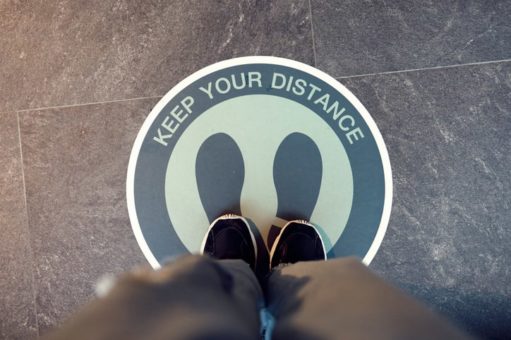In the Time of COVID-19: What is Social Anxiety?
The COVID-19 pandemic has taken a mental toll on a lot of individuals and some people may have experienced a degree of social anxiety during this time. While some individuals with social anxiety may have been comforted by social distancing restrictions and not having to interact with people in person as much, others have been plagued with increased anxiety around social interactions and have become isolated while navigating through the pandemic. This article will explore the definition of social anxiety and how the pandemic has oddly felt like a blessing and a curse for those with social anxiety.
What Is Social Anxiety?
The Social Anxiety Organization defines social anxiety as “the fear of being judged and evaluated negatively by other people, leading to feelings of inadequacy, inferiority, self-consciousness, embarrassment, humiliation, and depression.” Furthermore, the DSM-V defines the disorder as “a persistent fear of one or more social or performance situations in which the person is exposed to unfamiliar people or to possible scrutiny by others.” While some people experience specific (or specialized) social anxiety, such as public speaking, others experience generalized social anxiety, which causes them to feel emotional discomfort in almost all social situations. These social situations can range from interpersonal relationships with known individuals to being in large crowds with unfamiliar people. It is, according to the Social Anxiety Organization, the third largest mental health concern in the United States.
Social Anxiety During the COVID-19 Pandemic
Living during a health pandemic and trying to learn about an unfamiliar disease with ever changing regulations and restrictions can be anxiety producing. It seems nearly impossible to not experience some form of this anxiety while interacting with others. The pandemic has introduced social anxiety to many individuals for the first time. Fear and anxiety have become a part of life for individuals who were otherwise at peace in their daily lives before the pandemic. For individuals who relied on loved ones to help them through their social anxiety in the past are now faced with seclusion and separation in hopes of keeping themselves safe and slowing the spread of the virus.
Yet, for some of us who have lived with social anxiety before the pandemic, the idea of social distancing and quarantine was the reprieve we dreamed of. For me, personally, it was like music to my ears! The thought of only leaving my house when it was absolutely necessary, wearing a mask at all times (helping to hide my identity), working remotely when possible, etc., was the type of society I dreamt of on days when my social anxiety was extremely high and I wished to shut the world out. I’ve heard people who live with social anxiety celebrate this new normal we are living in, hoping that certain precautions are long term.
Social Anxiety Turning into Isolation
Though social distancing may seem like the perfect solution to social anxiety to someone with this diagnosis, there are downsides to social distancing while living with social anxiety. It may provide one with the appearance of or temporary emotional safety, however, if not careful, social distancing can be very isolating. No person is an island, and isolation may lead to depression and greater anxiety in a time when having healthy support is so important. Likewise, using social distancing as a form of avoidance does not help an individual use proper coping skills when faced with situations that cause social anxiety.
It is also important to point out that, contrary to what some may think, living with social anxiety does not mean that individuals do not want to be around people. Social anxiety does not equal anti-social. It often means that the discomfort an individual feels in social settings is too much to bear. The pandemic has created a greater barrier to coping with social anxiety for individuals who desire to work towards better social interactions.
Coping with Social Anxiety During the Pandemic
Living with social anxiety can greatly affect your everyday life if not managed well. There are ways to help cope with social anxiety. Discovery Mood & Anxiety Programs can offer both counseling and support groups to help you process your fears and anxieties around social interactions.
April Cox is a permanency specialist II at Professional Family Care Services in Johnstown, Pennsylvania. She is passionate about the mental health of individuals and families and prides her work on providing practical ways to promote mental health wellness. April has a BA in sociology and has worked as a therapeutic staff support, family-based counselor, and drug and alcohol counselor before transitioning to child welfare, where she helps foster children and foster families process past traumas. April is passionate about the arts and spends her evenings teaching dance classes to all ages.
